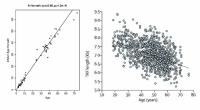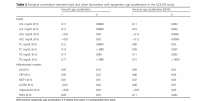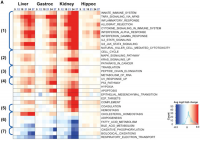Yuri Deigin's article on epigenetic aging and methylation clocks, with interesting references
This post is my opinion and is not fully referenced. Take it in the spirit it's intended.
I like Yuri and other 'programmed aging' enthusiasts like Josh Mittledorf. But believing in programmed aging is for me something akin to believing in heaven. I'd love to believe. But that doesn't mean I do.
As this article points out there are many different epigenetic clocks, and only those mapped to chronological age like Horvath's are subject to my previous criticisms.
I agree with Yuri that Sinclair's idea of random DNA damage leading to epigenetic dysregulation is preposterous (my words not Yuri's). Upon reading Sinclair's book it was obvious to me that this would mean the resulting epigenetic changes would be random, and they're clearly not - they preferentially target genes important for repair, for example.
This is where Yuri's argument for programmed aging comes in. But I just can't make myself believe it. Repair IS costly. It is not plausible to maintain all Ants like the privileged Queen, just like we can't equally share out the wealth of Elon Musk, no matter what the Marxists claim.
I also agree there is no 'saved' epigenetically young state. But I don't agree with the following statement:
'Returning to epigenetic rejuvenation by partial reprogramming, the very fact that it is possible, and occurs smoothly, tells me that the decrease in the expression of “good” genes with age is also epigenetically programmed, and does not occur randomly due to some kind of “noise”. After all, if it were a random process, we would not have any epigenetic clocks, since the variation between people would be too large, and would only increase with age. There would also be no epigenetic rollback: after all, reprogramming is an obviously smooth process, ending with a complete loss of differentiation and the transformation of a cell into a pluripotent one.'
Just because you can smoothly roll back the epigenetic changes that occur with age - and that those changes were not random - does not mean the process that causes them in the first place cannot be stochastic. Let me explain.
My eyes were attracted to Fig 4 from this paper Yuri quotes
https://www.cell.com...1247(19)31091-5
(See the attached pic.)
Most comments on age related changes in gene expression are on the epigenetic upregulation of inflammatory genes for example, not the downregulation of the electron transport chain in mitochondria. I did a deep dive into loss of expression into important mitochondrial genes earlier this year and I can tell you that there most certainly is an energetic trade off between ATP production and mitochondrial maintenance, a full explanation of which will have to wait for its own post. The point is that the resulting mitochondrial dysregulation can lead to mtDNA escape and autoimmunity via the STING response.
This is only one example of a non programmed aging pathway. My favourite telomeres are another. It may be a surprise to some that given my interest in telomeres I am not a 'programmer'. But telomeres too MAY be designed to trade the death of the old for the (breeding) success of the young. Nature is happy for short telomeres to kill the old with cancer or any of the other diseases of aging, in order to avoid the small chance (excessively) long telomeres in the young could lead to more of the much rarer, but deadly, childhood cancers.
Most of all programmed aging lacks a clock. This is ironic given the many methylation clocks quoted by Yuri in its support. But what is the signal that makes them tick? It still hasn't been found. Yuri suggests the germ cell signalling on sexual maturity that leads to heat shock response being downregulated in nematodes. But it's clear any kind of heat is bad for germ cells. Even saunas that make you live longer will damage your sperm count.
Here's a much simpler explanation. It is the stochastic damage of metabolism that makes epigenetic clocks tick. Old cells (without ready replacements) acquire dysfunctional mitochondria through stochastic metabolic processes and the passage of time The cell then adapts to a bad situation by making the best of it and down and upregulating various genes in the nucleus. Then (naive) scientists come along and decide the problem (and aging itself) is those adaptations.
Consider this the null hypothesis. Disprove it if you can.
Edited by QuestforLife, 28 October 2020 - 10:21 PM.




























































